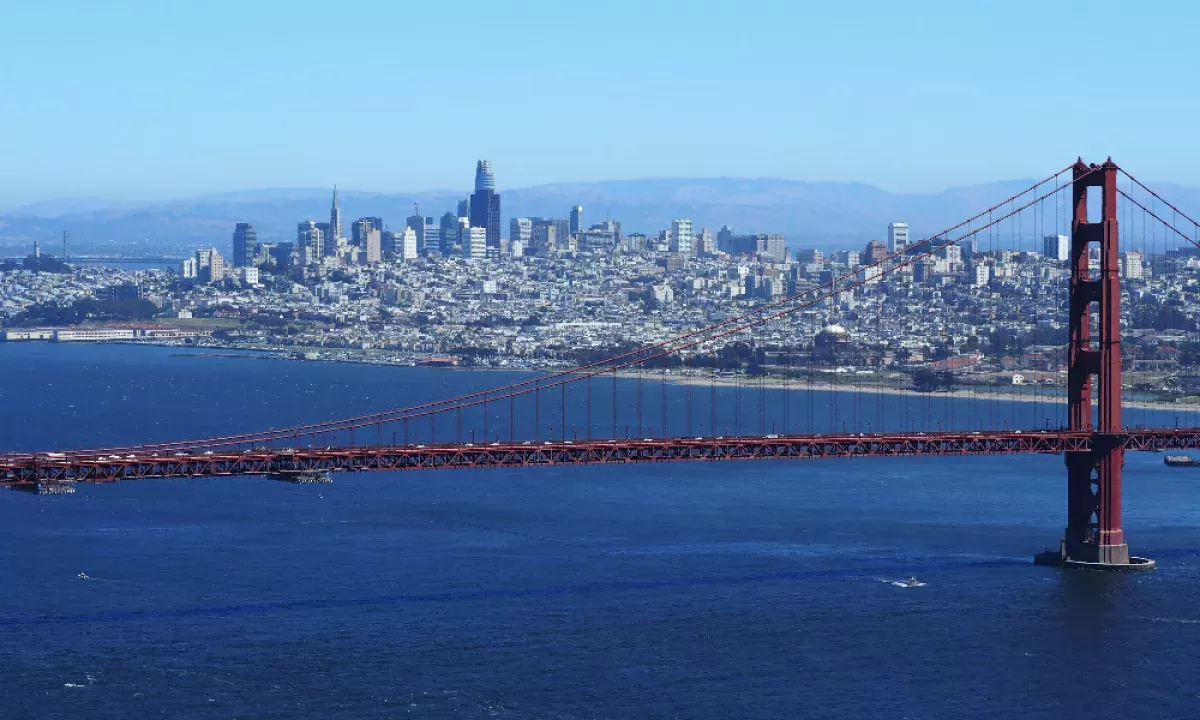San Francisco is a major commercial, financial, and cultural hub in Northern California. As of 2024, it has a population of over 827,000, making it the fourth-most populous city in California and the 17th in the U.S. San Francisco is known for its high population density, per capita income, and aggregate income. The greater San Francisco Bay Area houses between 4.6 and 9.2 million residents. The U.S. Census Bureau estimated the city's metropolitan statistical area population at over 4.6 million and the combined statistical area at over 9.1 million in 2024.
1900: Golden Gate Park Contributed To Area Development
From 1870-1900, the creation of Golden Gate Park contributed to the development of the west side of the city.
1900: San Francisco Plague Epidemic
In 1900, the first North American plague epidemic, known as the San Francisco plague, began.
1901: San Francisco's Flamboyant Style
Around 1901, San Francisco was a major city known for its flamboyant style, stately hotels, ostentatious mansions on Nob Hill, and a thriving arts scene.
1901: Formation of Golden Gate University
In 1901, Golden Gate University, a private, nonsectarian university, was formed in the Financial District.
1904: End of San Francisco Plague
In 1904, the first North American plague epidemic in San Francisco ended.
April 18, 1906: Earthquake Struck San Francisco
On April 18, 1906, a major earthquake struck San Francisco and northern California at 5:12 am. Resulting fires burned out of control for several days, destroying more than three-quarters of the city. Jack London famously eulogized the earthquake.
1906: Homes Built in Pacific Heights
Following the 1906 earthquake, wealthy San Franciscans built homes in Pacific Heights, establishing it as an affluent neighborhood.
1906: San Andreas Fault Earthquake
In 1906, the San Andreas Fault caused a significant earthquake impacting San Francisco. This event highlights the seismic activity influenced by the fault.
1906: Western Addition Survival
In 1906, the Western Addition survived the earthquake with its Victorian houses largely intact, including the "Painted Ladies" alongside Alamo Square.
1906: San Francisco Earthquake and Fire
In 1906, three-quarters of San Francisco was destroyed by an earthquake and fire. The city was quickly rebuilt, hosting the Panama-Pacific International Exposition nine years later.
1906: Location of the 1899-1906 City Hall
The location of the Historical Center of San Francisco monument, where the 1899–1906 City Hall was once located, is in United Nations Plaza.
1910: Founding of SPUR
In 1910, the San Francisco Planning and Urban Research Association (SPUR) was founded to address the quality of housing after the earthquake.
September 1912: Michael O'Shaughnessy Hired as Chief Engineer
In September 1912, Michael O'Shaughnessy was hired as chief engineer for San Francisco to supervise the construction of key infrastructure projects.
1912: First Bay to Breakers Footrace
In 1912, the first Bay to Breakers footrace was held.
1913: Raker Act granted leasehold over Hetch Hetchy Valley
In 1913, San Francisco was granted a perpetual leasehold over the Hetch Hetchy Valley and watershed in Yosemite National Park by the Raker Act.
1915: O'Shaughnessy Completed Streetcar System
Between 1915 and 1927, Michael O'Shaughnessy pushed San Francisco's streetcar system to completion.
1915: Panama-Pacific International Exposition
In 1915, San Francisco celebrated its rebirth at the Panama-Pacific International Exposition.
1918: Construction of the Twin Peaks Tunnel
In 1918, the construction of the Twin Peaks Tunnel connected southwest neighborhoods to downtown via streetcar, accelerating development of West Portal and nearby areas.
1920: Major League Baseball Production Study
In 1920, a study was initiated to examine which U.S. metro areas have produced the most Major Leaguers.
1927: O'Shaughnessy Completed Streetcar System
Between 1915 and 1927, Michael O'Shaughnessy pushed San Francisco's streetcar system to completion.
1929: Stock Market Crash
In 1929, following the stock market crash, no San Francisco-based bank failed.
December 11, 1932: Lowest Recorded Temperature
On December 11, 1932, the lowest recorded temperature was 27 °F (−3 °C).
1934: Mount Davidson Cross Built
In 1934, a 103-foot tall cross was built on Mount Davidson, San Francisco's tallest hill.
1936: Completion of the Bay Bridge
In 1936, San Francisco completed the San Francisco-Oakland Bay Bridge as part of two great civil engineering projects during the Great Depression.
1937: Completion of the Golden Gate Bridge
In 1937, San Francisco completed the Golden Gate Bridge as part of two great civil engineering projects during the Great Depression.
1939: Golden Gate International Exposition
In 1939, San Francisco celebrated its regained grandeur with a World's fair, the Golden Gate International Exposition, creating Treasure Island in the middle of the bay to house it.
1940: Non-Hispanic White Residents
In 1940 non-Hispanic White residents formed 92.5% of the population of San Francisco.
1945: United Nations Charter Signed in San Francisco
In 1945, the United Nations Charter creating the United Nations was drafted and signed in San Francisco.
1945: Opening of Weather Station
The coldest daytime high since the station's opening in 1945 was recorded in December 1972 at 37 °F (3 °C).
1946: 49ers Began Playing
In 1946, the San Francisco 49ers began playing as an All-America Football Conference (AAFC) league charter member.
1950: San Francisco's population
By 2000, San Francisco's population reached new highs, surpassing the previous record set in 1950 due to the dot-com boom.
1950: Urban Planning Projects and Demographic Change
From 1950 to 1980, San Francisco lost over 10 percent of its population. Urban planning projects involved widespread destruction and redevelopment. The city began to lose industrial jobs and turned to tourism.
1951: Treaty of San Francisco
In 1951, the Treaty of San Francisco re-established peaceful relations between Japan and the Allied Powers.
1955: Dons Basketball NCAA Championship
In 1955, Bill Russell led the San Francisco Dons basketball team to an NCAA championship.
1956: Dons Basketball NCAA Championship
In 1956, Bill Russell led the San Francisco Dons basketball team to another NCAA championship.
1958: Giants Moved to San Francisco
In 1958, Major League Baseball's San Francisco Giants moved to San Francisco from New York.
1959: Fewer Than 3,300 First-Class Hotel Rooms
In 1959, San Francisco had fewer than 3,300 first-class hotel rooms, demonstrating a smaller hotel infrastructure compared to later years.
1962: Warriors Moved to San Francisco Bay Area
In 1962, the NBA's Golden State Warriors moved to the San Francisco Bay Area from Philadelphia and played as the San Francisco Warriors.
1967: Summer of Love
In 1967, hippies flocked to Haight-Ashbury in San Francisco, reaching a peak with the Summer of Love.
1968: Founding of California Institute of Integral Studies
In 1968, the California Institute of Integral Studies was founded, offering graduate programs.
1969: Bank of America completed 555 California Street
In 1969, Bank of America, founded in San Francisco, completed 555 California Street.
1969: Manufacturing Sector Employs Nearly 60,000 Workers
In 1969, San Francisco's manufacturing sector employed nearly 60,000 workers, representing a significant part of the city's economy at that time.
1970: 9,000 First-Class Hotel Rooms
By 1970, San Francisco had 9,000 first-class hotel rooms, indicating a significant increase in the hotel industry due to heightened interest in conventioneering.
1971: Establishment of KPOO
In 1971, KPOO, an independent, African-American owned and operated noncommercial radio station, was established.
1971: Closure of The Fillmore
In 1971, The Fillmore music venue closed its doors with a final performance by Santana.
1971: Renamed Golden State Warriors
In 1971, the team was renamed the Golden State Warriors prior to the 1971–1972 season.
December 1972: Coldest Daytime High
In December 1972, the coldest daytime high since the station's opening in 1945 was recorded at 37 °F (3 °C).
1972: Golden State Warriors Name
In 1972, the Golden State Warriors were attempting to present the team as a representation of the whole state of California
1972: Transamerica Pyramid Completed
In 1972, the Transamerica Pyramid was completed, igniting a period of extensive high-rise development downtown.
1972: First San Francisco Pride
In 1972, the first San Francisco Pride events were held, marking the beginning of a continuous tradition of pride celebrations in the city.
1973: Construction of Sutro Tower
In 1973, Sutro Tower was built for KTVU, KRON, and KPIX.
1974: Zebra Murders
In 1974, the Zebra murders in San Francisco left at least 16 people dead.
1975: Last Serious Republican Challenger Loses Mayoral Election
In 1975, the last serious Republican challenger for city office lost the mayoral election by a narrow margin, marking a shift towards dominance by the Democrats and Green Party in San Francisco politics.
1976: Snowfall on Twin Peaks
In 1976, San Francisco experienced snowfall, with up to 5 inches (13 cm) falling on Twin Peaks, a rare occurrence for the city.
1977: Employment in Large Firms Declines
Since 1977, the number of San Franciscans employed by firms of more than 1,000 employees has fallen by half, indicating a shift away from large corporations and towards smaller businesses.
1978: Harvey Milk Assassination
In 1978, San Francisco became a center of the gay rights movement with the emergence of The Castro. Harvey Milk was assassinated, along with Mayor George Moscone.
January 1980: San Francisco and Shanghai became sister cities
In January 1980, Mayor Dianne Feinstein signed a sister cities agreement with Shanghai during a visit to China.
1980: San Francisco Population Loss
From 1950 to 1980, San Francisco lost over 10 percent of its population due to suburban growth and demographic shifts.
1980: First Escape from Alcatraz Triathlon
In 1980, the first Escape from Alcatraz triathlon was held, attracting 2,000 top professional and amateur triathletes.
1980: San Francisco Recycling Program Implemented
The 1980 San Francisco Recycling Program was one of the earliest curbside recycling programs, highlighting the city's early commitment to environmental sustainability.
1981: Friends of the Urban Forest Established
In 1981, the non-profit Friends of the Urban Forest was established, further solidifying San Francisco's role as a leader in environmental activism and urban forestry.
1984: First Folsom Street Fair
In 1984, the Folsom Street Fair (FSF) started as an annual BDSM and leather subculture street fair held in September, ending San Francisco's "Leather Pride Week".
1988: Republican Vote Below 20% Since 1988
San Francisco has not voted more than 20% for a Republican presidential or senatorial candidate since 1988, highlighting the city's strong Democratic and liberal leanings.
1989: Demolition of the Embarcadero Freeway
Following the 1989 Loma Prieta earthquake, city leaders demolished the Embarcadero Freeway and a portion of the Central Freeway, converting them into street-level boulevards.
1989: Loma Prieta Earthquake
In 1989, the Loma Prieta earthquake caused destruction in San Francisco, damaging structures and leading to the demolition of the Embarcadero Freeway. This allowed the city to reclaim The Embarcadero.
1989: San Andreas Fault Earthquake
In 1989, the San Andreas Fault caused another earthquake that impacted San Francisco. This event further emphasizes the seismic vulnerability of the city due to its proximity to the fault.
1989: Sanctuary City Declaration
San Francisco declared itself a sanctuary city in 1989, offering protection to undocumented immigrants.
1990: Increase in Foreign-Born Residents
Between 1990 and 2000, the number of foreign-born residents in San Francisco increased from 33% to nearly 40%.
1990: Technology Jobs Account for 1% of Economy
In 1990, technology jobs accounted for just 1% of San Francisco's economy, marking the beginning of a significant shift towards high tech and biotechnology sectors.
1991: Warmest Night Recorded
During an average year between 1991 and 2020, San Francisco recorded a warmest night at 64 °F (18 °C).
1993: Free Syringe Program Distributes 400,000 Syringes Monthly
Since 1993, the San Francisco Department of Public Health has distributed 400,000 free syringes every month aimed at reducing HIV and other health risks for drug users, as well as providing disposal sites and services.
1994: CNET founded
In 1994, CNET was founded in San Francisco.
1994: Reopening of The Fillmore
In 1994, The Fillmore music venue reopened with a show by the Smashing Pumpkins.
1995: Salon.com founded
In 1995, Salon.com was founded in San Francisco.
1995: SFMOMA moved to current building
In 1995, the San Francisco Museum of Modern Art (SFMOMA) moved to its current building in the South of Market neighborhood.
1998: Wattis Institute for Contemporary Arts founded
In 1998, the Wattis Institute for Contemporary Arts was founded as part of the California College of the Arts.
1999: Job Growth Rate at 4.9%
Between the years of 1999 and 2000, the job growth rate in San Francisco was 4.9%, creating over 50,000 jobs in technology firms and internet content production, highlighting the economic boom driven by the internet.
1999: More Than 30,000 First-Class Hotel Rooms
By 1999, San Francisco had more than 30,000 first-class hotel rooms, reflecting the continued growth of the hotel industry due to conventioneering and tourism.
2000: Increase in Foreign-Born Residents
Between 1990 and 2000, the number of foreign-born residents in San Francisco increased from 33% to nearly 40%.
2000: Job Growth Rate at 4.9%
Between the years of 1999 and 2000, the job growth rate in San Francisco was 4.9%, creating over 50,000 jobs in technology firms and internet content production, highlighting the economic boom driven by the internet.
2000: San Francisco Population Reaches New Highs
By 2000, San Francisco's population reached new highs, surpassing the previous record set in 1950 due to the dot-com boom.
2000: Commuting by Private Vehicle
In 2000, 48.6% of residents commuted by driving alone or carpooling in private vehicles in San Francisco, which decreased to 41.3% in 2014.
2000: Opening of Oracle Park
In 2000, Oracle Park, the home stadium of the San Francisco Giants, opened.
2001: City CarShare Opens
In 2001, San Francisco became an early adopter of carsharing in America with the opening of the non-profit City CarShare, soon followed by Zipcar.
2001: Pedestrian Fatality Rate
In 2001, San Francisco had its previous highest count of pedestrian fatalities until 2013 when 21 pedestrians were killed in vehicle collisions.
2001: Dot-com Bubble Bursts
In 2001, the dot-com bubble burst, causing many startup companies to fold and lay off employees in San Francisco.
2002: Fight Hunger Bowl
In 2002, Oracle Park hosted the annual Fight Hunger Bowl college football game.
2003: Opening of UCSF Mission Bay campus
In 2003, the University of California, San Francisco (UCSF) opened a 43-acre Mission Bay campus to complement its original facility, aiming to foster biotechnology and life sciences entrepreneurship.
2004: Payroll Tax Exemption Approved for Biotechnology Companies
In 2004, San Francisco approved a payroll tax exemption for biotechnology companies to foster growth in the Mission Bay neighborhood, promoting the development of life sciences and medical research.
2004: Publicity Campaign to Support Local Businesses
In 2004, the Small Business Commission started a publicity campaign to keep a larger share of retail dollars in the local economy, aiming to support small, privately owned businesses and preserve the unique retail personality of San Francisco.
2006: Baseline Counts for Cyclists
In 2006, baseline counts were recorded for cyclists, which increased 58% by 2010 according to the San Francisco Municipal Transportation Agency (MTA).
2006: Small Businesses Dominate City Establishments
In 2006, small businesses with fewer than 10 employees and self-employed firms made up 85% of the city's establishments, highlighting the importance of small businesses to San Francisco's economy.
2007: Healthy San Francisco Program Expanded
In 2007, San Francisco expanded its Medicaid and other indigent medical programs into the Healthy San Francisco program, which subsidizes certain medical services for eligible residents.
2007: Median Household Income
In 2007, San Francisco ranked third of American cities in median household income with a value of $65,519 and median family income is $81,136.
2008: Estimated Bicycle Trips
In 2008, the San Francisco Municipal Transportation Agency (MTA) estimated that about 128,000 trips were made by bicycle each day in the city, representing 6% of total trips.
December 2010: Sunset Reservoir Solar Project Opens
The Sunset Reservoir Solar Project, featuring 24,000 solar panels on the roof of the reservoir, opened in December 2010. The 5-megawatt plant more than tripled the city's 2-megawatt solar generation capacity.
2010: United States Census
According to the 2010 census, San Francisco's population increased 8.5% to 873,965 by 2020.
2010: Technology Jobs Account for 4% of Economy
By 2010, technology jobs had grown to account for 4% of San Francisco's economy, indicating a substantial increase in the importance of the technology sector.
2010: Languages Spoken
In 2010, 55% of San Francisco residents spoke only English at home, while 19% spoke Chinese, 12% spoke Spanish, 3% Tagalog, and 2% Russian.
2010: Increase in Cyclists
In 2010, the San Francisco Municipal Transportation Agency (MTA) reported a 58% increase in the number of cyclists at 33 locations, compared to the 2006 baseline counts.
2010: Ethnic Groups in San Francisco
In 2010, the largest single ethnic minority group in San Francisco was Chinese at 21% of the population; other groups include Filipinos (5%) and Vietnamese (2%).
2011: Manufacturing Jobs Doubling Since 2011
As of 2014, San Francisco has seen a small resurgence in manufacturing, with more than 4,000 manufacturing jobs across 500 companies, doubling since 2011.
2011: Launch of Bloomberg West
In 2011, Bloomberg West was launched from a studio on the Embarcadero.
2011: Ed Lee was selected by the board to finish the term of Gavin Newsom
In 2011, Ed Lee was selected by the board to finish the term of Gavin Newsom, who resigned to take office as Lieutenant Governor of California.
2011: SFO Airport Ranking
In 2011, San Francisco International Airport (SFO) was the eighth-busiest airport in the U.S. and the 22nd-busiest in the world, handling over 40.9 million passengers.
2011: 50 Murders Reported
In 2011, San Francisco reported 50 murders, a rate of 6.1 per 100,000 people. Additionally, there were about 134 rapes, 3,142 robberies, 2,139 assaults, 4,469 burglaries, 25,100 thefts, and 4,210 motor vehicle thefts. The Tenderloin area experienced the highest crime rate, accounting for 70% of the city's violent crimes and one-fourth of the murders.
2012: Giants Won World Series and ranked No. 1 in producing Major Leaguers
In 2012, the San Francisco Giants won a World Series title, and San Francisco was ranked No. 1 in a study that examined which U.S. metro areas have produced the most Major Leaguers since 1920.
August 2013: Launch of Bay Area Bike Share
In August 2013, Bay Area Bike Share was launched with 700 bikes in downtown San Francisco, selected cities in the East Bay, and San Jose. The company was later rebranded as Bay Wheels.
2013: Technology Jobs Estimated at 8% of Economy
By the end of 2013, it was estimated that technology jobs would account for 8% of San Francisco's economy, further highlighting the growth of the technology sector in the city.
2013: 'Due Process for All' Ordinance
City officials in San Francisco strengthened their sanctuary city stance in 2013 with its 'Due Process for All' ordinance, limiting cooperation with federal immigration enforcement.
2013: Pedestrian Fatalities in Vehicle Collisions
In 2013, 21 pedestrians were killed in vehicle collisions in San Francisco, the highest number since 2001.
2013: Pedestrian and Biker Fatalities
In 2013, 25 pedestrians and bicyclists were killed by car and truck drivers in San Francisco, and 9 car drivers and passengers were killed in collisions.
2013: Last Fight Hunger Bowl
In 2013, Oracle Park hosted the last Fight Hunger Bowl college football game before it moved to Santa Clara.
2013: SFMOMA Closed for Renovation and Expansion
In 2013, SFMOMA closed for renovation and expansion.
2013: America's Cup in San Francisco
In 2013, San Francisco hosted the America's Cup yacht racing competition.
2013: Record Low Rainfall
In 2013, a record low of 5.59 inches (142 mm) of rainfall was recorded in downtown San Francisco, marking a significant drought year.
2013: Attendance at San Francisco Pride
In 2013, over 1.5 million people attended San Francisco Pride events, which was around 500,000 more than the previous year.
2013: Opening of SFJAZZ Center
In 2013, the SFJAZZ Center, a venue for year-round jazz performances, opened its doors.
September 25, 2014: New Terminal Project at Pier 27 Opens
On September 25, 2014, the new Terminal Project at Pier 27 opened as a replacement for the old Pier 35.
2014: Highest Quality of Living of Any U.S. City
According to a 2014 quality of life survey of global cities, San Francisco had the highest quality of living of any U.S. city, despite the rising cost of living and housing challenges.
2014: Small Resurgence in Manufacturing
As of 2014, San Francisco experienced a small resurgence in manufacturing, with more than 4,000 manufacturing jobs across 500 companies, indicating a potential revitalization of the sector.
2014: San Francisco Commits to Vision Zero
In 2014, San Francisco committed to Vision Zero, aiming to eliminate all traffic fatalities caused by motor vehicles in the city by 2024.
2014: 49ers Moved to Santa Clara
In 2014, the San Francisco 49ers moved approximately 50 miles south to Santa Clara and began playing home games at Levi's Stadium.
2014: Religious Groupings
In 2014, the largest religious groupings in San Francisco's metropolitan area were Christians (48%), followed by those of no religion (35%), Hindus (5%), Jews (3%), Buddhists (2%), Muslims (1%) and a variety of other religions have smaller followings.
2014: Decline in Commuting by Private Vehicle
In 2014, the percentage of San Francisco residents commuting by driving alone or carpooling in private vehicles decreased to 41.3%, a decline from 48.6% in 2000.
2014: Murders Reported in the First Six Months
In the first six months of 2014, San Francisco experienced 14 murders, a lower number when compared to 25 murders in the same period in 2015.
June 2, 2015: Median Rent Reported at $4,225
By June 2, 2015, the median rent in San Francisco was reported to be as high as $4,225, reflecting the city's exceptionally high cost of living.
2015: LGBTQ adult proportion
In 2015, survey data released by Gallup indicated that the San Francisco metro area had the highest proportion of LGBTQ adults among the 50 most populous metropolitan areas in the United States, with 6.2% of the population identifying as LGBTQ.
2015: Warriors in NBA Finals
In 2015, the Golden State Warriors made the first of five consecutive NBA Finals appearances.
2015: Municipal budget
In fiscal year 2015, the municipal budget for San Francisco was $8.99 billion, and the city spent over $10,000 per resident.
2015: Murders Increase in First Six Months
In the first six months of 2015, San Francisco experienced 25 murders, compared to 14 in the same period in 2014. However, the overall murder rate remained lower than in previous decades.
2015: CNBC Broadcasts from One Market Plaza
Since 2015, CNBC broadcasts from One Market Plaza in San Francisco.
May 14, 2016: SFMOMA Reopened
On May 14, 2016, the San Francisco Museum of Modern Art (SFMOMA) reopened after renovation and expansion, with an addition designed by Snøhetta.
2016: San Francisco Rated Low by Small Businesses
By 2016, San Francisco was rated low by small businesses in a Business Friendliness Survey, suggesting challenges faced by small businesses in the city.
2016: Murder Rate Rises
By the close of 2016, San Francisco experienced a rise in its murder rate. According to the San Francisco Police Department, there were 59 murders in the city, marking a 13.5% increase from the 52 homicides reported in 2015.
2016: Fifth-Highest Number of Foreign Tourists
In 2016, San Francisco attracted the fifth-highest number of foreign tourists of any city in the United States, underscoring its popularity as a global tourist destination.
2016: Employment Distribution Across Sectors
In 2016, approximately 27% of workers in San Francisco were employed in professional business services; 14% in leisure and hospitality; 13% in government services; 12% in education and health care; 11% in trade, transportation, and utilities; and 8% in financial activities, showcasing the diversified service economy of the city.
2016: Increased Spending to Service Homelessness Crisis
In 2016, spending jumped by $241 million in 2016–17 to total $275 million, compared to a budget of just $34 million the previous year.
2016: Municipal budget
In fiscal year 2016, the municipal budget for San Francisco was $8.99 billion, and the city spent over $10,000 per resident.
September 1, 2017: Highest Recorded Temperature
On September 1, 2017, the highest recorded temperature at the National Weather Service downtown observation station was 106 °F (41 °C).
December 12, 2017: London Breed temporarily replaced Ed Lee
On December 12, 2017, San Francisco Board of Supervisors President London Breed temporarily replaced Ed Lee after he died.
2017: Homeless Population Count
In 2017, 6,858 homeless people were counted in San Francisco.
2017: Major Expansion of Bay Area Bike Share
In 2017, a major expansion started for Bay Area Bike Share, along with a rebranding as Ford GoBike.
2017: Asian Population
In 2017, more than half of the Asian population in San Francisco was either Chinese-born (40.3%) or Philippine-born (13.1%).
2017: Establishment of San Francisco Shock
In 2017, the San Francisco Shock, an Esports team in the Overwatch League, was established.
2017: Budget for Combatting Homelessness
In 2017–18, the budget for combatting homelessness stood at $305 million.
January 2018: UN special rapporteur shocked by homelessness crisis
In January 2018, Leilani Farha, a United Nations special rapporteur on homelessness, expressed being "completely shocked" by the homelessness crisis in San Francisco during her visit. She compared the "deplorable conditions" of homeless encampments to those in Mumbai.
January 23, 2018: Mark Farrell was appointed by the Board of Supervisors to finish Ed Lee's term.
On January 23, 2018, Supervisor Mark Farrell was appointed by the Board of Supervisors to finish Ed Lee's term.
2018: San Francisco Metropolitan Statistical Area
As of 2018, the San Jose-San Francisco-Oakland, CA Combined Statistical Area had a population of over 9.6 million, making it the fifth-largest in the United States.
2018: "Poop Patrol" Formed
During the first half of 2018, complaints about human feces on San Francisco sidewalks became the second-most-frequent issue reported by city residents, averaging about 65 calls per day. As a result, the city formed a "poop patrol" to address the problem.
2018: Jewish Community
In 2018, Jewish Americans made up an estimated 10% (80,000) of San Francisco's population, being the third-largest Jewish community proportionally in the United States.
2018: Second-Largest Religion in San Francisco
In 2018, Jews make up 10% (80,000) of the city's population, making Judaism the second-largest religion in San Francisco after Christianity.
2018: ParkScore ranking
In 2018, San Francisco was ranked fifth in the U.S. for park access and quality in the ParkScore ranking of the top 100 park systems across the United States.
2018: Dog population
In 2018, the dog population was cited as exceeding the child population of 115,000.
2019: Protected Bike Lanes
As of 2019, 2.6% of San Francisco's streets had protected bike lanes, totaling 28 miles.
2019: Traffic Fatalities
In 2019, 42 people were killed in traffic collisions in San Francisco.
2019: Homeless Population Count
In 2019, 8,035 homeless people were counted in San Francisco, marking a more than 17% increase over the 2017 count. 5,180 of the people were living unsheltered.
2019: Opening of Chase Center
In 2019, Chase Center opened as the new home of the Golden State Warriors in the Mission Bay area, contributing to the redevelopment of the area.
2019: Bay Area Bike Share Renamed Bay Wheels
In 2019, Ford GoBike rebranded to Bay Wheels.
2019: Warriors in NBA Finals
In 2019, the Golden State Warriors made their fifth consecutive NBA Finals appearance.
2019: San Francisco Shock Championship
In 2019, the San Francisco Shock won a championship title.
2019: Budget for Homelessness Services
In the 2019–2020 budget year, the city budgeted $368 million for homelessness services.
2019: Golden Gate Bridge Suicide Barrier Installation
Starting in 2019, the railings on the west side of the pedestrian walkway of the Golden Gate Bridge were replaced with thinner, more flexible slats as part of the retrofitting and installation of a suicide barrier.
May 2020: San Francisco sanctions homeless encampments
In May 2020, San Francisco officially sanctioned homeless encampments, marking a shift in the city's approach to managing its homelessness crisis.
June 2020: Reports of a Loud Hum from the Golden Gate Bridge
Starting in June 2020, reports were received of a loud hum produced by the new railing slats on the Golden Gate Bridge, heard across the city when a strong west wind was blowing.
2020: San Francisco Metropolitan Area GDP
As of 2020, the San Francisco metropolitan area, with 4.5 million residents, ranked 5th by GDP ($874 billion) and 2nd by GDP per capita ($131,082) across the OECD countries.
2020: Racial Makeup of San Francisco
As of the 2020 census, the racial makeup and population of San Francisco included: 41.3% Whites, 33.9% Asians, 5.3% African Americans, 9.9% Multiracial Americans, and others.
2020: Coldest Day Recorded
During an average year between 1991 and 2020, San Francisco recorded a coldest day at 49 °F (9 °C).
2020: African American Population
In 2020, African Americans constituted about 5% of San Francisco's population, with the majority residing in Bayview-Hunters Point, Visitacion Valley, and the Fillmore District.
2020: San Francisco Shock Championship
In 2020, the San Francisco Shock won a second championship title.
2020: Budget for Homelessness Services
In the proposed 2020–2021 budget, the city budgeted $850 million for homelessness services.
2020: United States Census
The 2020 United States census showed San Francisco's population to be 873,965, an increase of 8.5% from the 2010 census.
2021: Projected Sea Level Rise
As of 2021, sea levels are projected to rise by as much as 5 feet (1.5 m) in San Francisco due to climate change, leading to flooding and rising groundwater.
2021: Car Break-ins Reach Over 19,000
In 2021, San Francisco gained a reputation for car break-ins, with over 19,000 incidents reported throughout the city.
2021: San Francisco Ranked Most Walkable City
In 2021, Walk Score ranked San Francisco the most walkable city in the United States.
2021: Budget for Homelessness Services
In the proposed 2020–2021 budget, the city budgeted $850 million for homelessness services.
2022: Median Home Value Reaches $1,297,030
As of the first quarter of 2022, the median value of homes in San Francisco County was $1,297,030, ranking it third in the U.S. for counties with the highest median home value.
2022: San Francisco International Visitors
In 2022, San Francisco had more than 1.7 million international visitors and approximately 20 million domestic ones.
2022: Measure Passed to Protect JFK Drive
In 2022, a measure on the ballot passed with 59% of voters in favor to protect JFK drive in Golden Gate Park as a pedestrian and biking space.
2022: Warriors NBA Champions
In 2022, the Golden State Warriors won the NBA Championship, their first championship while residing in San Francisco proper.
2022: Closure of San Francisco Art Institute
In 2022, the San Francisco Art Institute, founded in 1871, closed.
2023: San Francisco Rankings and GDP
As of 2023, among U.S. cities with over 300,000 residents, San Francisco was ranked first by per capita income and sixth by aggregate income. In 2023, San Francisco proper had a GDP of $263.1 billion and a GDP per capita of $325,000.
2023: Tourism Adds $9.3 Billion to Economy
In 2023, 23.1 million visitors arrived in San Francisco, adding US$9.3 billion to the economy, highlighting the importance of tourism to the city's financial health.
2023: San Francisco GDP
In 2023, San Francisco proper had a GDP of $263.1 billion and a GDP per capita of $325,000. The city is home to companies like Salesforce, Uber, Airbnb, OpenAI, Levi's, Gap, Dropbox, and Lyft.
2023: GDP Growth in San Francisco Metropolitan Area
In 2023, the GDP in the five-county San Francisco metropolitan area grew 3.4% in real terms to $779 billion. Additionally, in 2023 the 14-county San Jose–San Francisco–Oakland combined statistical area had a GDP of $1.397 trillion, ranking 3rd among CSAs, and ahead of all but 15 countries. As of 2023, San Francisco County ranked 11th by income per capita among U.S. counties, with a per capita personal income of $164,807.
2023: Muni is the eighth-largest transit system in the United States
In 2023, the San Francisco Municipal Railway (Muni) is the eighth-largest transit system in the United States, operating a combined light and heavy rail system (Muni Metro), bus and trolley networks, a historic streetcar line, and the cable cars.
April 2024: Crime Figures Down in First 100 Days
According to statistics released by the SFPD in April 2024, crime figures were down in the first 100 days of the year, namely in terms of robberies, burglaries, and larceny. In the first half of 2024, San Francisco experienced a 32% decrease in overall crime compared to the previous year. Personal property theft saw a 41% reduction, and violent crimes, including gun-related incidents, decreased by 30%.
2024: Salesforce Largest Private-Sector Employer
As of 2024, Salesforce is the largest private-sector employer in San Francisco, with 11,953 employees, indicating the company's significant presence in the city's economy.
2024: San Francisco Population and Rankings
In 2024, San Francisco had an estimated population of 827,526 residents, making it the fourth-most populous city in California. The U.S. Census Bureau reported an estimated population of 4,648,486 for the city's metropolitan statistical area and 9,164,058 residents for the larger combined statistical area.
2024: Homeless population reaches approximately 8,323
In 2024, San Francisco's Point-in-Time (PIT) count indicated that the homeless population was approximately 8,323 individuals, with over 20,000 people seeking homeless services in the city.
2024: San Francisco Ranked Fifth-Most Competitive Financial Center
In 2024, the Global Financial Centres Index ranked San Francisco as the fifth-most competitive financial center in the world, demonstrating the city's continued importance in the global financial landscape.
2024: Target year for Vision Zero
San Francisco's Vision Zero plan, initiated in 2014, has the goal of ending all traffic fatalities caused by motor vehicles within the city by 2024 through investment in engineering, enforcement, and education.
2025: Zero-waste goal
By 2025, San Francisco aims to divert 100% of waste from landfills as part of its zero-waste goal.
Mentioned in this timeline

Basketball is a team sport played on a rectangular court...
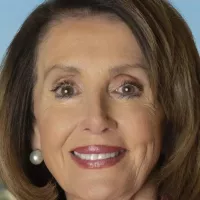
Nancy Pelosi is a prominent American politician notably serving as...
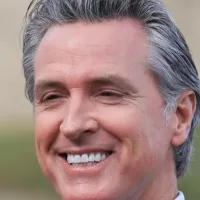
Gavin Newsom is an American politician and businessman currently serving...
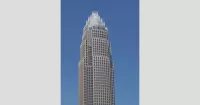
Bank of America is a multinational investment bank and financial...
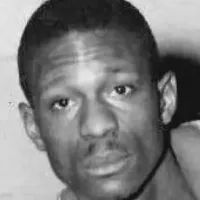
Bill Russell was a dominant American professional basketball player primarily...
CBS or CBS Broadcasting Inc is a major American commercial...
Trending
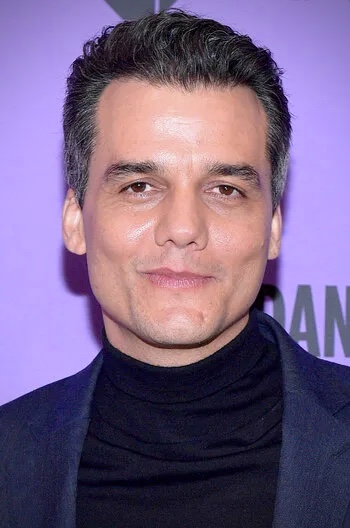
36 minutes ago Wagner Moura's Film 'Uma Batalha Após a Outra' Wins PGA Award, Oscar buzz.
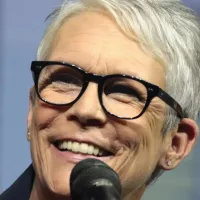
36 minutes ago Jamie Lee Curtis' 'Blue Steel' finds streaming success; Curtis guests on podcast
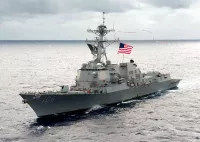
36 minutes ago Analysts Mixed on UnitedHealth Group's Investment Story After Stock Slide
37 minutes ago Oil Price Surge and Stock Market Decline Sparked by Iran War Fears
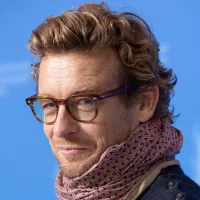
37 minutes ago Simon Baker's family, girlfriend, and 'The Mentalist' coming to Netflix soon.
2 hours ago South African Health Officials Arrested on Fraud and Theft Charges.
Popular

Jesse Jackson is an American civil rights activist politician and...

Hillary Diane Rodham Clinton is a prominent American politician lawyer...

XXXTentacion born Jahseh Dwayne Ricardo Onfroy was a controversial yet...

Jim Carrey is a Canadian-American actor and comedian celebrated for...

Kashyap Pramod Patel is an American lawyer who became the...

Michael Joseph Jackson the King of Pop was a highly...
